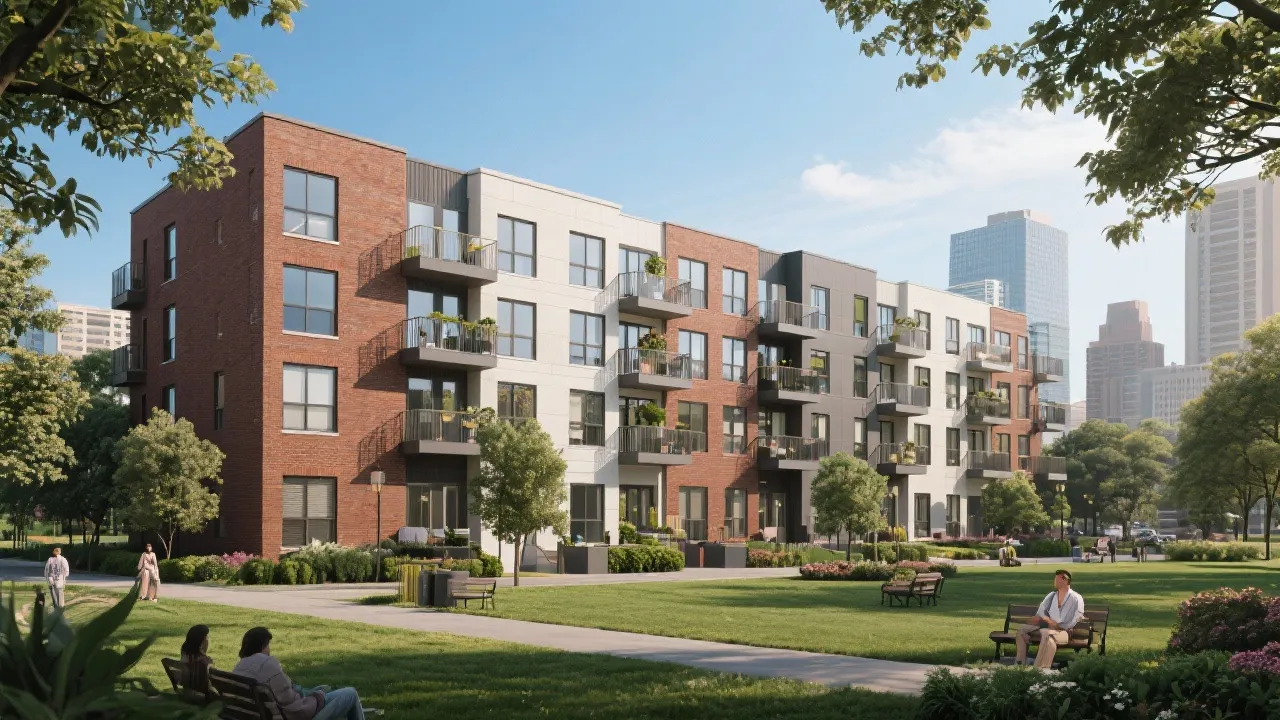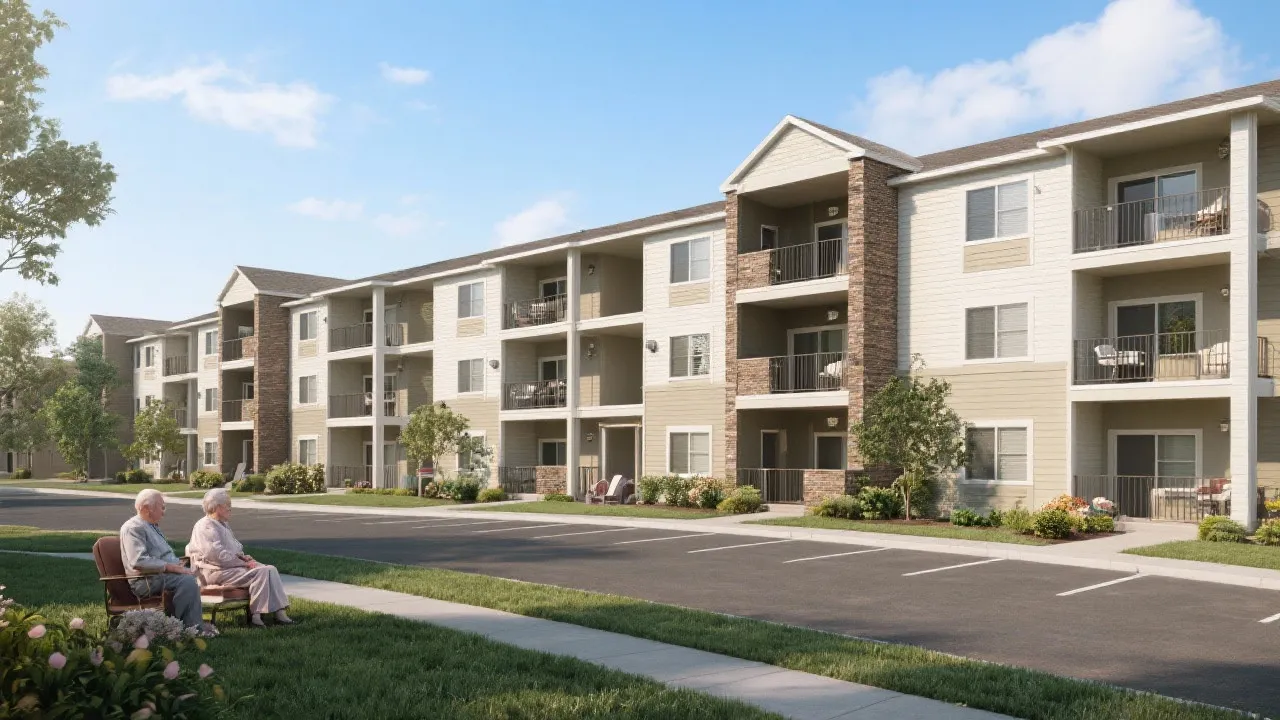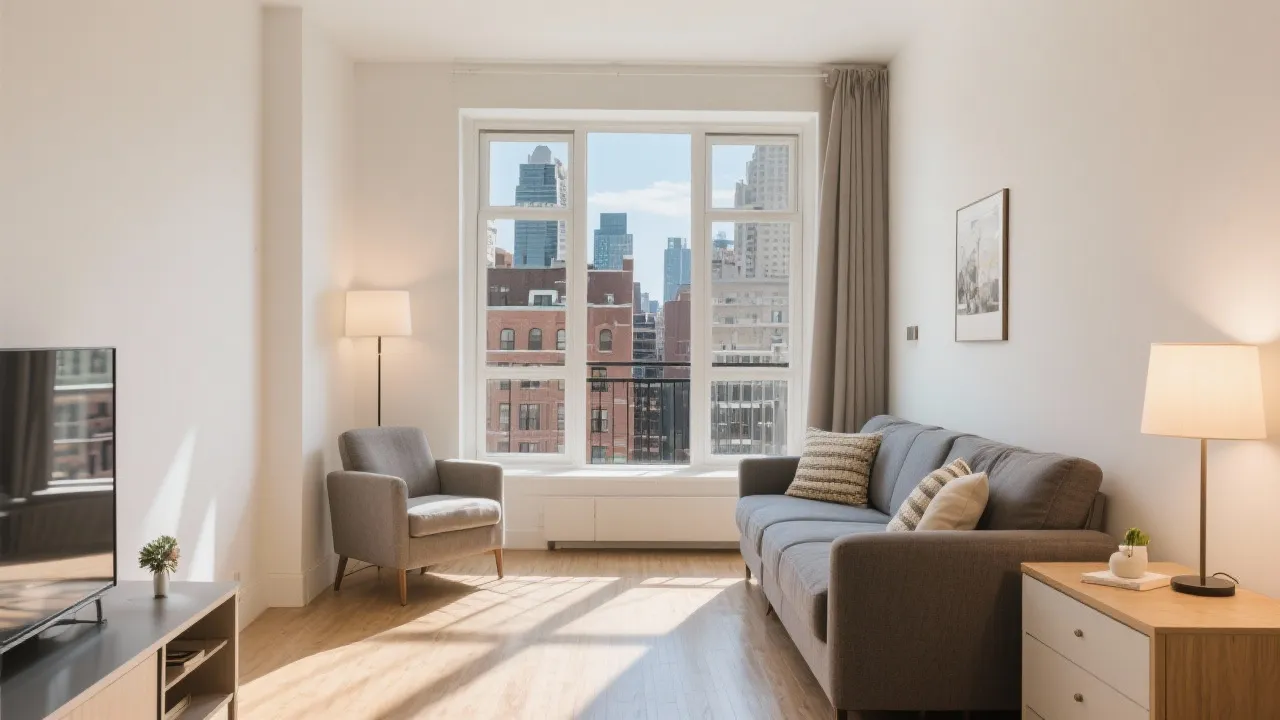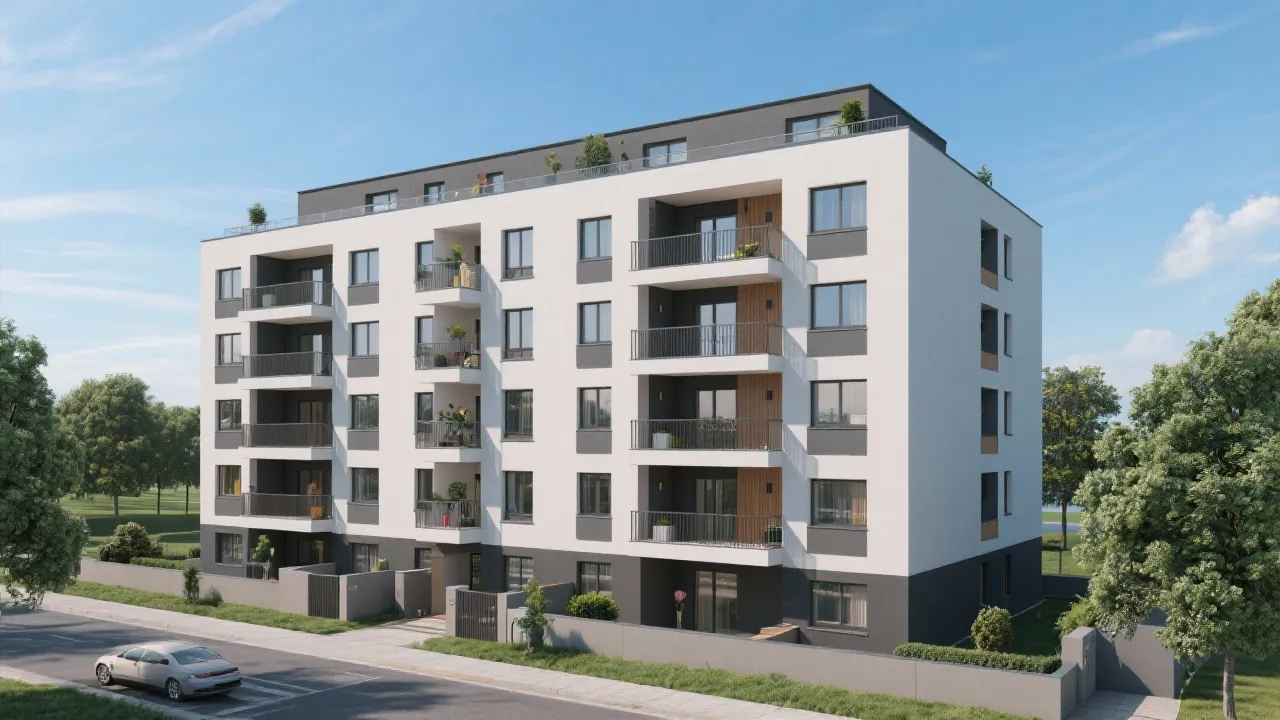Navigating the Apartment Rental Market
Renting an apartment is a significant decision involving several considerations, from location and budget to amenities and lease terms. This comprehensive guide explores the complexities of renting apartments, delving into market trends, pricing variations across regions, and resources available for specialized needs such as senior living, with a focus on English and French-speaking countries.

Understanding the Apartment Rental Landscape
Renting an apartment is a process that demands careful planning and consideration. It's more than a simple transaction; it involves understanding diverse factors such as location, budget, amenities, and lease conditions. For those navigating this market, especially in English-speaking countries, resources like AARP, SeniorLiving.org, and the National Senior Citizens Law Center provide crucial support and information, particularly for seniors seeking tailored living options. Meanwhile, similar support exists in French-speaking countries through entities like Senioriales and Retraite Plus. Understanding the rental landscape not only helps in locating a suitable apartment but also prepares renters for various challenges often encountered in the process. Various things such as bad landlords, hidden fees, and confusing leases can create obstacles that can be mitigated with the right knowledge and support.
Market Dynamics and Trends
The apartment rental market is characterized by its volatility, influenced by various factors such as economic conditions, population movements, and urban development. In major metropolitan areas, rental costs can soar due to high demand and limited supply, whereas smaller cities or towns may offer more affordable options. These dynamics are particularly pronounced in regions with booming job markets or significant demographic shifts. For instance, tech hubs like San Francisco and Seattle have experienced rapid rental price increases as the tech industry flourishes, often outpacing wage growth and pushing displacement for lower-income residents. In contrast, areas that are recuperating from economic downturns may provide incentives for renters, including lower rents and favorable lease terms.
Additionally, urban development plays a crucial role in shaping rental markets. Governments often invest in infrastructure, which can make certain neighborhoods more attractive. This creates a cycle where new amenities, such as parks, shops, and transportation options, lead to increased demand and rental prices. Conversely, neighborhoods facing urban decay or high crime rates may struggle, causing rental prices to stagnate or even decline. Understanding these trends helps renters not only in choosing a location but also in timing their lease agreements to secure better rates.
Pricing Across Different Regions
Understanding price ranges is crucial for prospective renters. Here is an overview of rental costs in select English-speaking and French-speaking countries:
| Country | City Type | Price Range |
|---|---|---|
| United States | Large cities (e.g., New York) | $2,000 - $4,000 per month |
| United States | Smaller cities | $1,000 - $2,000 per month |
| United Kingdom | Large cities (e.g., London) | £1,500 - £3,000 per month |
| Australia | Large cities (e.g., Sydney) | AUD 2,000 - AUD 3,500 per month |
| France | Paris | €1,200 - €2,500 per month |
| France | Other cities | €600 - €1,200 per month |
These ranges highlight the variance in pricing between different regions and types of cities, influencing your decision depending on budget and location preferences. It is also worth noting the phenomenon of 'gentrification', where previously lower-income neighborhoods become desirable and thus experience rising rents. This process often displaces existing residents, which can result in a political and social dynamics that renters should remain aware of while searching for apartments. Moreover, rising costs do not just impact rent but can also affect ancillary expenses like utilities and maintenance fees, which should be factored into overall budgeting.
Resources for Senior Housing
Seniors looking for rental options can benefit from various resources. In English-speaking countries, organizations like AARP and SeniorLiving.org offer directories and guides on senior housing. AARP provides insights on living options such as independent and assisted living, while SeniorLiving.org delves into pricing, amenities, and care types. Similarly, the National Senior Citizens Law Center provides resources emphasizing senior rights related to housing. By equipping themselves with knowledge about their rights, seniors can avoid scams and predatory practices while renting.
In French-speaking countries, platforms like Senioriales offer independent living solutions with a focus on comfort and security. Retraite Plus specializes in advising on finding suitable retirement homes or care facilities, emphasizing tailored care and good support. The landscape of senior housing can be complex— a thorough exploration of available resources can result in better choices, more favorable contract terms, and overall satisfaction with the living arrangements.
Finding Affordable Senior Housing
For those looking to find budget-friendly senior living options in English and French-speaking regions, several steps can be followed:
- Research online directories and platforms focused on senior housing. These platforms often provide comprehensive listings and can include filters for pricing, location, and type of accommodation.
- Consult local non-profit organizations dedicated to senior living, as they may offer free resources or even financial assistance programs for qualifying renters.
- Engage with communities to get recommendations and reviews. Online forums, local meetups, and community centers can provide insights from those with firsthand experience.
- Explore government-assisted housing options for seniors. Many states offer benefits programs aimed at providing affordable housing solutions for low-income seniors.
- Networking can also be an effective strategy. Many senior housing options are filled through word-of-mouth, and knowing the right people can lead to great deals.
- Attend housing fairs or community events focused on senior services. These events often present opportunities to learn about various housing options in a given area.
- Consider roommate arrangements or shared living situations to reduce overall rental costs, which can ease the financial burden while fostering a sense of community.
An Expert's Perspective
Experts in the rental market emphasize the need for thorough research and comparison when selecting an apartment. As previously mentioned, comparing rentals based not just on price but also on neighborhood amenities, proximity to essential services, and potential for community engagement can enrich the renting experience. Additionally, staying informed about market trends and available resources can empower renters to make well-informed decisions. For example, understanding the implications of a lease agreement's fine print regarding deposits or maintenances can prevent misunderstandings that may lead to expensive disputes down the line.
Your rental decision should also consider the long-term implications; for instance, if someone plans to stay for many years, opting for a property with a reasonable rent increase clause is vital. Engaging a knowledgeable real estate agent or realtor with experience in rental properties can also provide valuable insights and access to more options that might not be widely advertised.
Common Challenges and Solutions in Apartment Renting
While the process of renting an apartment may be streamlined and simplified with adequate resources, numerous challenges remain that renters should proactively prepare for. Some of these common challenges include:
- High Competition: In many urban areas, there is stiff competition among prospective renters, which can lead to bidding wars for desirable apartments. To mitigate this, consider being flexible with potential move-in dates or increase your application’s attractiveness by offering to provide references or proof of income.
- Hidden Fees: Landlords may impose additional fees, such as maintenance or utility costs that are not clearly listed upfront. Scrutinizing the lease agreement and discussing any gray areas with the landlord can help clarify these issues before signing.
- Lease Terms: Many renters find lease agreements filled with complex jargon that can obscure critical details. It may be beneficial to have a lawyer familiar with tenant rights review the lease to ensure that all the terms meet legal standards and your needs.
- Bad Landlords: Renters may encounter landlords who are unresponsive or unwilling to engage in proper maintenance of the property. Keeping a record of all communications, including both email and printed correspondence, can help build a case for further escalation if necessary.
- Unforeseen Life Changes: Changes such as job loss or health crises may necessitate moving before the lease term is completed. Understanding local laws regarding breaking leases and communicating with your landlord at the earliest signs of difficulty is essential for navigating this situation respectfully.
FAQs
- What factors should you consider when renting an apartment?
Key considerations include location, budget, amenities, lease terms, and proximity to essential services. Always list your must-haves versus nice-to-haves to streamline your search. - How can seniors find specialized rental housing?
Seniors can use dedicated resources like AARP or SeniorLiving.org for guidance on appropriate living arrangements. Additionally, reaching out directly to local senior centers can provide a wealth of information. - Are there affordable rental options in major cities?
Major cities often have a high cost, but exploring nearby smaller towns or city outskirts can offer more affordable alternatives. Some cities may have special programs or incentives aiding low-income renters. - What preparation is necessary before signing a lease?
Having all your documentation ready, such as proof of income, references, and your credit report, can facilitate a smoother application process. It's also advisable to visit the apartment multiple times at various times during the day. - What should you do if you encounter issues with your landlord?
Initially, try to resolve the issue directly with your landlord. If that fails, document all interactions and consider contacting your local housing authority or legal assistance for further guidance.
Disclaimer: The above information is sourced from online resources, reflecting data as of October 2023. For further details, readers are encouraged to refer to official websites. Official sources include: AARP, SeniorLiving.org, NSCLC, Senioriales, and Retraite Plus.
-
1

Revolutionizing Smiles: The Breakthrough Innovations in Dental Implants Changing Oral Health Care Forever
-
2

Unveiling the Top Dental Implant Options for Seniors: Transform Your Smile with the Ultimate Guide to Restored Radiance
-
3

Understanding Dental Implants Costs and Financing
-
4

Discover the Key to a Dazzling Smile: Your Ultimate Handbook for Selecting the Ideal Tooth Replacement Option
-
5

Affordable Dental Implants Solutions Near You










